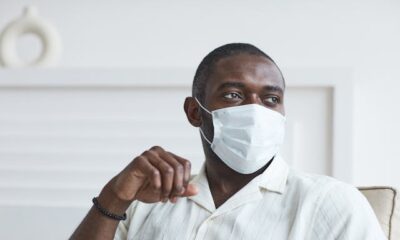Features
SmartWork Inc: What Every Woman Needs to Know about Breast Cancer

Breast cancer is the most common cancer among women and the second most common of all cancers, globally. In 2018 alone, there were over 2 million new cases of breast cancer and more than 600,000 deaths from the disease.
Breast cancer is a disease in which cells of the breast grow out of control. There are different kinds of breast cancer, depending on which cells of the breast turn into cancer. Breast cancer can spread outside the breast through blood vessels and lymph nodes.
Is it possible to survive breast cancer?
Yes, it is. However, breast cancer survival rates differ across the world. Survival rates range from over 80% in high-income to below 40% in low-income countries. Breast cancer survival rates are poorer in developing countries due to late detection, and inadequate diagnosis and treatment facilities.
Why are some people more prone to developing breast cancer than others?
Family history
Research shows that about 5-10% of breast cancer cases are linked to gene mutations passed through generations of a family. Women with a family history of breast cancer have a higher risk of developing the disease.
Prolonged exposure to endogenous and exogenous estrogens
Early onset of menstruation and late menopause, having children at old age, and the prolonged use of oral contraceptives and hormone replacement therapy expose women to estrogens for long periods and increase their risk of developing breast cancer.
Lifestyle
Research indicates that 21% of global breast cancer cases are attributable to physical inactivity, alcohol use, and obesity. Women who smoke are also at a higher risk of developing breast cancer.
What steps can women take to understand their breast cancer risk?
- Learn your family history of breast cancer: It may indicate that you are at a higher risk.
- Talk to a doctor if you are at a higher risk: Your doctor can help you make a plan for managing your risk. The plan may include clinical breast examinations or mammography.
- Know how your breasts normally look and feel through monthly self-breast examination: Talk to your doctor right away if you notice changes in the size or shape of your breast, pain, or nipple discharge.
How can breast cancer be controlled?
Early detection is the cornerstone of breast cancer control. The three main screening methods for early detection of breast cancer are Self Breast Examination (SBE), clinical breast examination, and mammography.
Self-Breast Examination
40% of diagnosed breast cancers are detected by women who feel a lump, so establishing a regular self-breast examination routine is important. Self-breast examinations should be done on the same day of the month, preferably towards the end of your menstrual cycle.
Clinical Breast Examination
Clinical breast examinations should be done as recommended by your gynecologist.
Mammography
It is generally recommended that women with a higher risk of developing breast cancer should have mammograms annually from age 30 and other women should have mammograms annually from age 40. Between the ages of 45-50 years, women should have mammograms annually and from age 50, women should have mammograms annually or once every 2 years, depending on their doctor’s recommendation.
What can you do to reduce your risk of developing breast cancer?
Maintain a healthy weight
It is important to maintain a healthy weight because being overweight or obese increases your risk of breast cancer, particularly after menopause.
Eat healthy diets
A healthy diet can help you maintain a healthy weight. Your diet should include fruits, vegetables, whole grains, legumes, nuts, lean meat, fish, and healthy oils like olive oil.
Exercise
Regular exercise can help you maintain a healthy weight. You should aim for at least 150 minutes of moderate aerobic activity or 75 minutes of vigorous aerobic activity weekly, plus strength training twice a week.
Breastfeed your baby
Studies have shown that breastfeeding might play a role in breast cancer prevention. The longer you breast-feed, the greater the protective effect.
Do not smoke
Research shows a link between smoking and breast cancer.
Reduce alcohol intake
Limit your alcohol intake to less than one drink a day. Studies show that the more alcohol you drink, the greater your risk of developing breast cancer.
Limit dosage and duration of hormone therapy
The use of combination hormone therapy for more than 3-5 years increases the risk of breast cancer. Should these medications be required for contraception or menopausal symptoms, you may speak to your doctor about alternatives, lower dosage, or shorter duration.
Reduce exposure to radiation and environmental pollution
Some research suggests that there might be a link between breast cancer and cumulative exposure to radiation over your lifetime. Reduce your exposure by having high-dose imaging tests such as CT scans only when absolutely necessary.
_
SmartWork Inc is a management and sustainability consultancy focused on impacting the everyday lives of people and ultimately building a better world. We are also passionate about promoting the physical, mental, and emotional health of women and debuted our female education initiative ‘Esteemed Woman’ on 19th October 2020, to mark breast cancer awareness month.
Our Instagram page, @esteemed_woman aims to provide life-changing information to promote women’s health and welfare.
Website: www.smartwork-ng.com
Contact: [email protected]
***

















